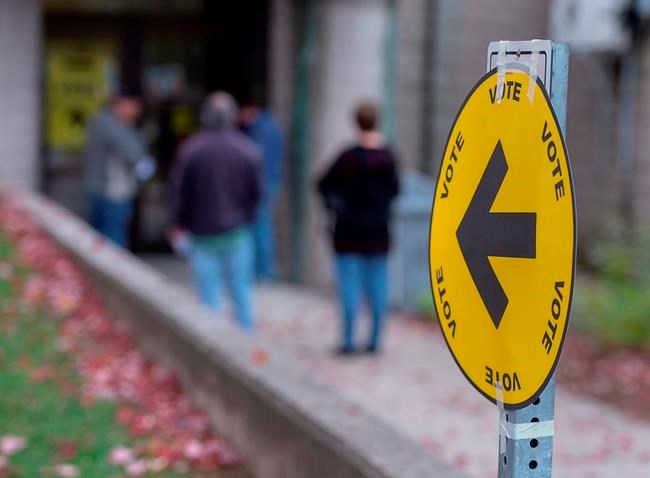OTTAWA — A senior official at the Public Health Agency of Canada says holding a federal election during the COVID-19 pandemic would be feasible, despite the logistical challenges that Elections Canada would face.
Dr. Barbara Raymond, an executive medical adviser at the federal public health agency, told MPs Thursday that two federal byelections in Toronto and recent provincial elections provided valuable experience that would help Elections Canada overcome challenges.
"I believe it is possible (to hold a federal election)," she said.
"We have examples of that happening in several jurisdictions across the country."
She said Canadians should not lose hope as the pandemic continues to disrupt their lives.
"I don't envision a scenario where Canadians would be deprived of their right to vote," she said. "I think every possible contingency and plan is being put into place to enable that to happen."
The House of Commons committee on procedure and House affairs is exploring how Canadians could safely head to the polls during the COVID-19 pandemic.
Raymond said the public health agency has been engaging with Elections Canada to support its planning efforts for an election during a pandemic.
"The protection of Canadian voters, communities, as well as Elections Canada staff and volunteers are key concerns," she said.
The public health agency provided Elections Canada with advice based on the best current scientific evidence and expert opinion to assist it in determining risks and mitigation strategies at election offices and polling stations, Raymond said.
She said the use of rapid testing for election purposes is not feasible now, but it could be an option in the future.
"Important considerations are the availability and access to rapid testing, and whether that is, in fact, the best use of a scarce resource."
B.C. provincial health officer Dr. Bonnie Henry told the committee the recent election in that province is not responsible for a surge in COVID-19 cases, since there were no reports of anyone exposed to the novel coronavirus at an election-related event.
"With the measures that we had in place, we could safely have an election at any time during this pandemic," she said.
She says early planning, wearing masks and practising physical distancing inside polling stations. and voting by mail and, in some cases, by telephone helped prevent any outbreaks.
"For many people, including students and people with disabilities, it was the mail-in ballots that were incredibly helpful."
Voting by telephone was reserved for those who were not able to leave their homes, she said. "We also had telephone voting available for people who were sick with COVID."
Henry said she and her team helped political parties in B.C. develop guidance about how to campaign safely.
"We talked about things like going door-to-door and what would that look like, and how to have smaller gatherings," she said.
Raymond says her agency helped Elections Canada connect with provincial health authorities to ensure the federal election planning takes into account local health rules.
"There is no one-size-fits-all approach given the variability of COVID-19 epidemiology across the country," she said.
"The recommendations that are in place in St. John's, N.L., are quite different than those that are in place in Toronto."
This report by The Canadian Press was first published Oct. 29, 2020.
----
This story was produced with the financial assistance of the Facebook and Canadian Press News Fellowship.
Maan Alhmidi, The Canadian Press



